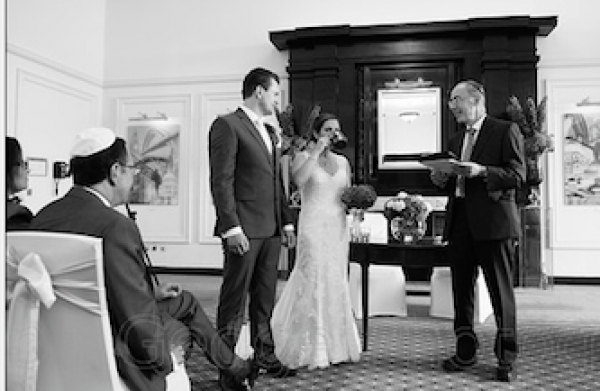Is there much interest in mixed-faith ceremonies? Surely they make up only a minute proportion of marriages?
Much of my work as a civil celebrant involves mixed-faith ceremonies. And I notice that such ceremonies are now becoming mainstream.
Not long ago I read that 45% of Americans are intermarried. That includes 46% of mainline Protestants, 32% of Evangelical Protestants, 22% of Catholics and 44% of Jews. I don’t have the UK statistics, but it wouldn’t surprise me if the trend were not similar.
In any case, that means a lot of people are intermarrying.
So what do you have to think about if you are planning a mixed-faith wedding?
Disadvantages
One obvious problem can be the family (indeed, in my experience, this area can sometimes be very fraught!) .
Whether or not the family is bankrolling the wedding, and therefore ‘pulling the strings’, religion is a potential minefield. Even though the parents may not actually be all that committed service-attenders, they often have an absolute expectation of a traditional ceremony. So there’s immediate conflict and pressure on the couple.
In such cases, the couple need to acknowledge and understand the disappointment that intermarriage might cause. But compromise is possible. An example might be that the father can still walk the bride down the ‘aisle’, (even if the aisle isn’t actually in a religious building).
However, the couple must not be bullied into doing what they do not want or believe.
Another thing the pair need to consider is eventual children, and the question of how (religiously) to bring them up. I don’t think there is any categorical guidance one can really give – it’s a decision for the couple alone, but they do have to be prepared to confront it.
Advantages
Being ‘put on the spot’ by marrying means that both partners will need to sort out their religious stance. They can learn about their partner’s customs, and this will help them create a meaningful wedding ceremony – and guide them in their future spiritual life together.
They will be able to work with their celebrant to agree on a service that is in accordance with their beliefs and desires. They can then include customs and traditional rituals from either religion as they choose – a kind of “edited highlights”, perhaps?
I am currently booked to perform a Jewish wedding (under the marriage canopy) for a Jewess and Christian. We’re having a New Testament reading and a hymn, but most of the rest will be traditional Jewish (with a couple of ‘extras’ thrown in).
The couple are also selecting readings relevant to them and which underline their mutual love and willingness to make a commitment to each other. These personalised readings can lift the occasion far above the mundane.
Compromise
Parents can be reassured that any grandchildren will be taught about their religious background (even if they may not actively practise it), that they will visit for certain religious holidays, and that parents will be able – and welcome – to play a part in their grandchildren’s lives.
It may take time, but a beautiful interfaith wedding may actually bring the families together and pave the way to harmony.
Featured image: courtesy of Philippa Gedge

